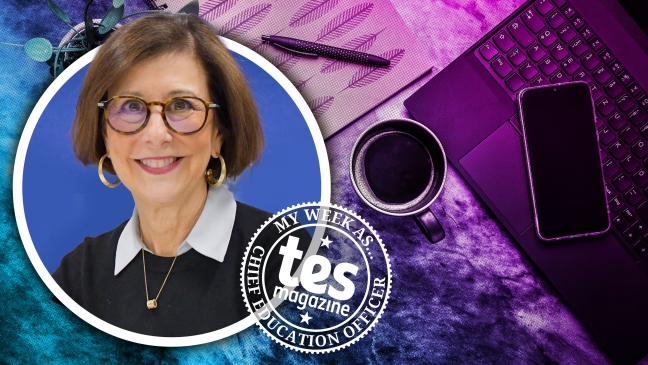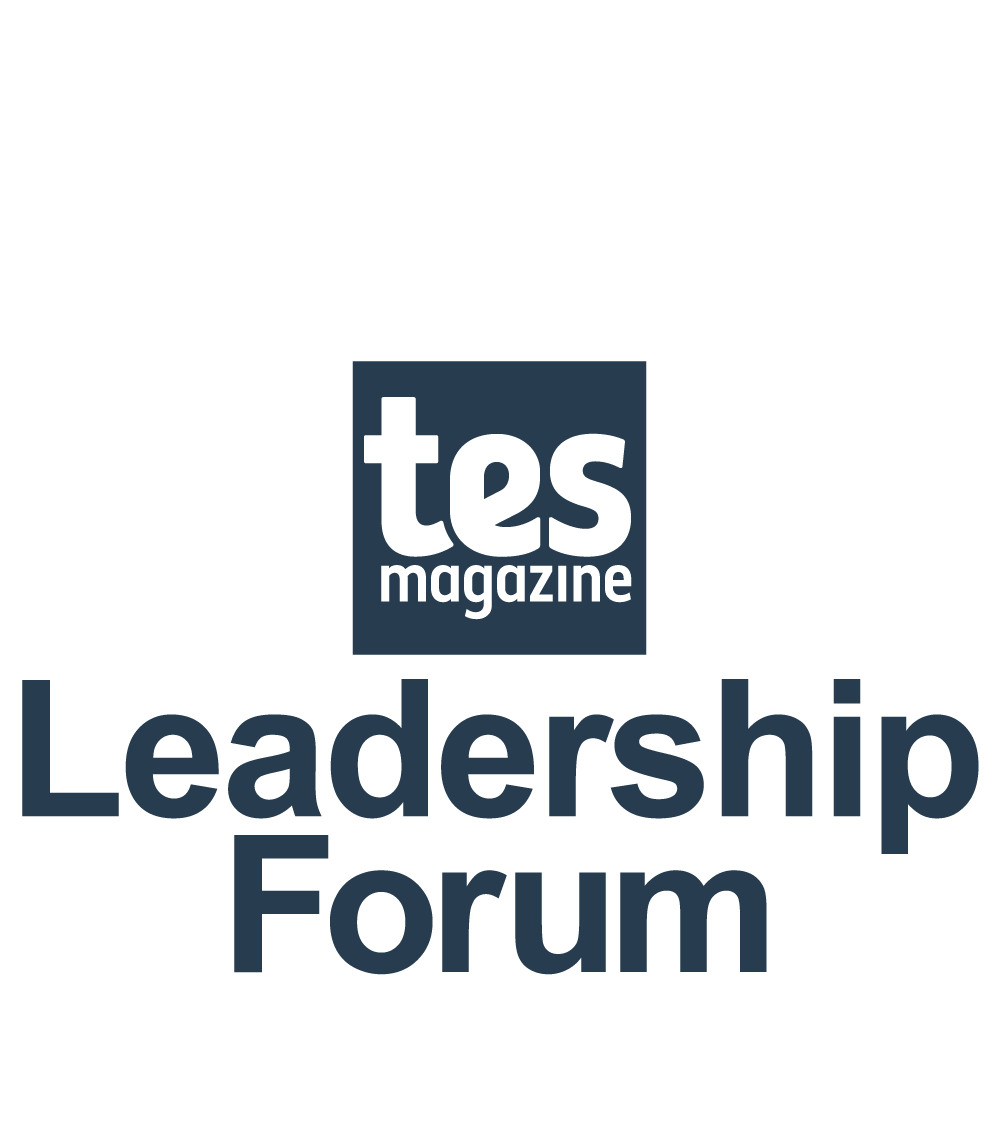
- Home
- Leadership
- Strategy
- My Week As... Nord Anglia chief education officer
My Week As... Nord Anglia chief education officer

Since 2020 Dr Elise Ecoff has been chief education officer of international schools group Nord Anglia Education, which has almost 90 schools around the world.
Based in London, after relocating from Florida last year, she explains that the demands of her role can be broken down into the ŌĆ£four pillarsŌĆØ of Nord Anglia strategy: academic outcomes, wellbeing, creativity and global connectedness.
Asked what a typical week in her job looks like, the former school principal tells Tes that there is no such thing for her, but her current areas of focus are Nord AngliaŌĆÖs education research programme, 51║┌┴Ž and wellbeing, digital platforms and professional learning - ŌĆ£all enablers for strong, vibrant schoolsŌĆØ.
Academic outcomes
One of my priorities is that our team develops relationships to allow really good partnerships with schools. In terms of academic outcomes, itŌĆÖs about working together to set standards for how schools look at their own development.
Every year our schools do a self-evaluation, then we serve as critical friends holding up a mirror. We ask questions like, ŌĆ£How do you know that your students are growing? What evidence do you have?ŌĆØ - instead of saying, ŌĆ£This is what you should do.ŌĆØ That helps us to see patterns or identify things that schools need, which, in turn, helps to develop content on Nord Anglia University, our platform for professional growth.
Another big priority for me is our exciting work with schools on research. WeŌĆÖre doing a big two-year research project right now on metacognition, with 27 schools and our research partner, Boston College. We think metacognition ties strongly into academic outcomes.
From that one research project four more have grown. For example, we work with students on strategies (thinking routines) that come from Project Zero - a research centre at the Harvard Graduate School of Education [these projects focused on learning, thinking and creativity]. We now have an exclusive project with them where weŌĆÖre developing our own thinking routines, bespoke to Nord Anglia.
ThereŌĆÖs also a project around metacognition in the early years, led by our Avenues S├Żo Paulo school in Brazil. ThatŌĆÖs taking up quite a bit of my time right now.
Virtual connections are wonderful in all of this, but thereŌĆÖs nothing like spending time in a school. IŌĆÖve been getting ready to head out to China then on to Geneva for our Europe conference, and in between IŌĆÖll visit as many schools as I can.
Wellbeing
Wellbeing is the number one priority for me and for all of our schools. But how do we know what weŌĆÖre doing with students is making a difference?
About three years ago we partnered with the Anna Freud National Centre for Children and Families, which developed bespoke training for us on wellbeing. But then you must measure impact. We donŌĆÖt believe in one size fits all; ultimately, schools across 33 countries have to personalise and contextualise approaches for their own communities.
More from My Week As...
- Pinaki Ghoshal, executive director for children and young people at Lewisham Council
- Annie Wiles, CEO of Aquila The Diocese of Canterbury Academies Trust
- Vanita Uppal, director of The British School New Delhi
WeŌĆÖve been working quite a bit on 51║┌┴Ž data. How do you use data to support schools? What kinds of things are schools seeing as 51║┌┴Ž concerns? Are there schools that have really great practice in, say, digital 51║┌┴Ž? I spend a lot of time with my team identifying those really fabulous areas of practice then sharing them.
Global connectedness
A lot of this is around the kinds of experiences that weŌĆÖre providing for students - helping them to see beyond the classroom and make connections with the wider world. A great example would be our expeditions programmes to Tanzania and Switzerland.
The students going to Tanzania help local communities - weŌĆÖve had relationships with NGOs in the area for many years - by building schools and improving roads and other infrastructure. In Switzerland, where students are mountaineering, theyŌĆÖre learning about how to navigate situations without their cell phones, along with students from other Nord Anglia schools around the globe.
We have a really fabulous partnership with Unicef, and students learn about the sustainable development goals through our platform. They develop projects in their own schools to support communities and can apply for grants: a student board selects ideas to go to a board of adults, which decides the projects that go forward each year.
These are big, big pieces of work, involving lots of people in schools and on the ground in Tanzania and Switzerland. I have a level of oversight but, as I learned a long time ago, itŌĆÖs really important to hire great people.
Creativity
Our own research looks at how we develop creativity as one of our learner ambitions. But we also focus on this in work we do in collaborations with The Juilliard School [a performing arts school in New York] Juilliard and Massachusetts Institute of Technology (MIT). We work with MIT each year, creating a series of challenges for students - itŌĆÖs about interdisciplinary learning, looking at things from all different angles.
This year, for example, weŌĆÖre looking at areas of artificial intelligence - big topics that students can work on in groups or independently. They post responses and solutions on Global Campus, and itŌĆÖs a really wonderful way to develop.
IŌĆÖd like to think I give the four pillars equal balance. Some weeks will be focused on one more than the others, but theyŌĆÖre all completely intertwined and, together, form a common language for our schools.
Personal time
London is so incredibly vibrant - IŌĆÖd never lived in a big city before. I go on lots of walks, visit museums. I love the Natural History Museum, the V&A, the Design Museum, but my favourite is the Tate Modern, which is incredible.
Just to sit in a cafe was so foreign to somebody used to a very different lifestyle - in Florida people tend to drive and public transportation isnŌĆÖt really a thing. So IŌĆÖm really soaking up the very best of what London has to offer. IŌĆÖve had visits from lots of people and have become quite the tour guide. ItŌĆÖs hard not to fall in love with London.
What would I like to do more or less of?
In the perfect world, IŌĆÖd spend more time in schools, and I guess I would like more than 24 hours in a day. But I absolutely love my job - itŌĆÖs such a privilege.
Dr Elise Ecoff was talking to Henry Hepburn
You need a Tes subscription to read this article
Subscribe now to read this article and get other subscriber-only content:
- Unlimited access to all Tes magazine content
- Exclusive subscriber-only stories
- Award-winning email newsletters
- Unlimited access to all Tes magazine content
- Exclusive subscriber-only stories
- Award-winning email newsletters
You need a subscription to read this article
Subscribe now to read this article and get other subscriber-only content, including:
- Unlimited access to all Tes magazine content
- Exclusive subscriber-only stories
- Award-winning email newsletters
- Unlimited access to all Tes magazine content
- Exclusive subscriber-only stories
- Award-winning email newsletters
topics in this article




